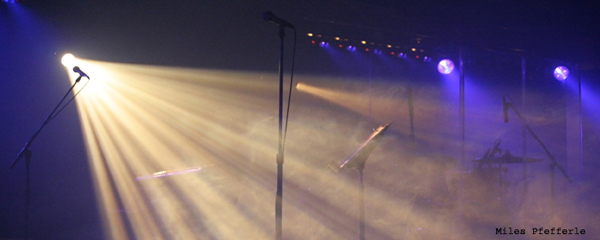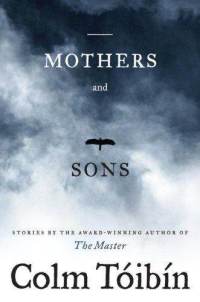
photo by Miles Pfefferle
by Anushree Nande
First memories are always special, for good or for bad. Colm Tóibín’s ‘A Song’, from Mothers and Sons, was the first short story I really enjoyed. I’d read the occasional piece of short fiction in school and some outside, but there was no proper introduction to the genre until I was given this short story, on the first day of University – his collection having won the inaugural Edge Hill Short Story Prize just a few months before. Little was I to know that I would refer to it many times over the next four years, including in my Masters dissertation for its use of lyrical prose and music as unspoken communication, as well as the power of silence.
 As a reader, my instant connection with the story was with its title, and as the story unfolded, so did the connection between the words of the title and the writing style employed by Tóibín. A narrative told in limited third person that unfolds not unlike a song. Introductory chords, initial stanzas that slowly build up to the chorus and the repeat of this structure, all of which is building up to the final crescendo – that point where we expect the glimpse of a revelation, a change.
As a reader, my instant connection with the story was with its title, and as the story unfolded, so did the connection between the words of the title and the writing style employed by Tóibín. A narrative told in limited third person that unfolds not unlike a song. Introductory chords, initial stanzas that slowly build up to the chorus and the repeat of this structure, all of which is building up to the final crescendo – that point where we expect the glimpse of a revelation, a change.
‘A Song’ is set in Ireland and touches on the relationship between central character Noel and his estranged mother during one short spontaneous meeting. In fact, the mother doesn’t know her son has listened to her performance, and in the end, they don’t meet at all, forget converse. However she is a constant presence, even before her introduction in the pub, starting from the first few lines, when we find out that she is a famous singer:
His singing voice, however, was special, even though it had nothing
of the strength and individuality of his mother’s voice, known to all
of them from one recording made in the early seventies.
Through details interspersed in the narrative, there is a gradual unfolding of Noel’s past with his parents. His mother has run off with her lover when Noel is just nine years old and he has grown up with his birth father. When the story begins in a pub in Clare, a small Irish town, Noel is 28. He knows that his mother, whom he has not been in touch with for 19 years, is in the pub and he doesn’t quite know what to do. His relationship with his father is also revealed to be strained – Noel has recently found out that his mother had written in the early years after she left, but his father had returned each letter without opening it. Not only that, but he also banned Noel’s grandmother, from Galway, from visiting. Noel seems unsure, cautious, trying to maintain a sense of calm though he’s on the verge of barely concealed panic that steadily grows with the narrative itself.
“I’m glad you’re on the soda water. I suppose you know that your
mother is here.” […]
“I do all right,” Noel said, smiling. “There’ll be no beer tonight.”
 One of the things that touched me – first as a reader, and then as a writer – is the sheer amount and depth of emotion that Colm Tóibín is able to convey through simple, clear, and very sparse prose. There is an intense physical and psychological distance between the characters in his stories, heightened by the brevity. It would seem that such aching beauty and emotion would be impossible to convey through a seemingly simple and almost clinical writing style, but – through his concision – Toibin conveys more than most writers I’ve read. The emotion pulls you in and briefly makes you part of a moment in the lives of his characters – in this case, a son and his estranged mother. We never really find out whether the mother was aware of Noel’s presence, whether that song was intended to be a peace offering of sorts. Was it an apology for everything she wanted to say but couldn’t without music?
One of the things that touched me – first as a reader, and then as a writer – is the sheer amount and depth of emotion that Colm Tóibín is able to convey through simple, clear, and very sparse prose. There is an intense physical and psychological distance between the characters in his stories, heightened by the brevity. It would seem that such aching beauty and emotion would be impossible to convey through a seemingly simple and almost clinical writing style, but – through his concision – Toibin conveys more than most writers I’ve read. The emotion pulls you in and briefly makes you part of a moment in the lives of his characters – in this case, a son and his estranged mother. We never really find out whether the mother was aware of Noel’s presence, whether that song was intended to be a peace offering of sorts. Was it an apology for everything she wanted to say but couldn’t without music?
The song, like many of the old songs, was about unrequited love,
but it was different from most of them in its increasing bitterness.
Soon, it became a song about treachery.
In the end, the song is a lament about despair at losing everything because of love, including God. Noel is instantly overwhelmed by the undeniable power and ease of his mother’s talent – even imagining how he would harmonise around what she was singing – and yet is hesitant to broach wounds that seem only superficially healed. The question of whether it is unspoken communication for the mother is never answered, they don’t even begin to reconcile, and we feel the ache and pain of each character’s ‘unfulfilled dreams’.
Just as the song sung by his mother isolates Noel from everyone else in that pub, so it is with the readers. We are ensnared in their fragile cocoon, forgetting that there are other characters in the story, minor as they may be. Onlookers to what seems like a very private communication between two people who haven’t spoken in 19 years. Even as we strain to listen to the music that jumps off the page as the mother sings, we can never fully understand what is being said, broken, fragmented, emotional. The song is the focal point of the narrative and it’s a very effectively used narrative tool that doesn’t become a device nor deviates from being the subtle glue holding together the rest of the narrative. It’s a powerful few moments and you almost expect a sense of calm as it ends, and yet there is a palpable jitteriness as Noel panics and leaves without saying anything to his mother.
In an interview with S. Alland, Tóibín laughs, saying: “If I was a really good writer, I would have him go up to her and say the right thing, anything, and then the next part would be, ‘The next day they had lunch together.’ ” Instead he ends on a very simple line, in keeping with the rest of the narrative: ‘He turned the car and waited in the darkness for the others to come.’
It’s a typical Tóibín end. There is no explosive epiphany. No change of heart or reversal. No neat tying up of knots. No real closure. Only a deep and haunting longing that stays with you long after the story is over.


I too enjoyed your piece. I’m currently reading a novel of his but looking forward to reading his short stories. Thanks!
Very good response to the story. I am yet to read the stories of Toibin, but this gives me a nice neough introduction. Really look forward to reading ‘A Song’.
Thank you for reading, I’m glad you enjoyed it 🙂 Hope you enjoy Toibin!